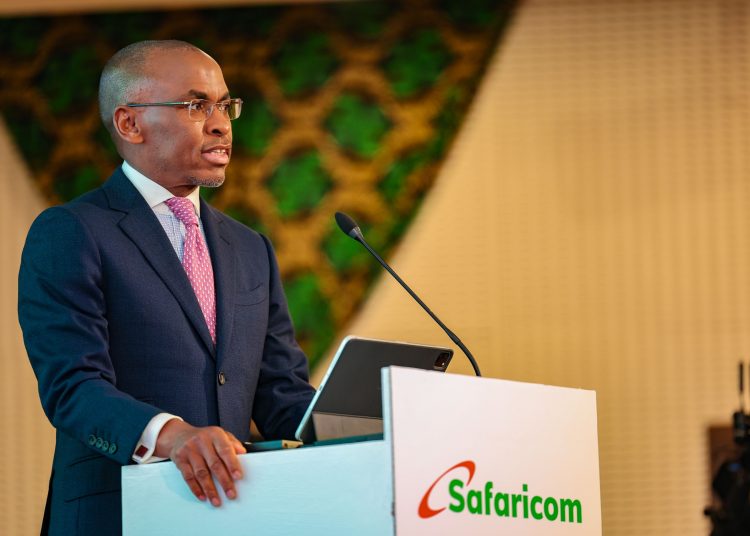Policies & African startups is a monthly series written by Titi Akinsanmi. All musings are hers and not attributable to TechCabal or any organisations she is serving, working or affiliated with.
First of all, introduction
It has taken many years for me to put pen to paper – in this form. Why? Well I focused and hoped ‘those’ who have the expertise, the skills to write etc, etc, etc would get round to doing this. But…the impactful change one seeks truly does begin with one. So here goes…
I write as I speak – painting pictures with words, sometimes rambling and stopping at bus stops to share an extra nugget, insight or to detour completely. And sometimes I will enter the rabbit hole of writing in formal academic language to address a specific issue.
You see, this ‘column’, my writing is not your typical treatise or intellectual exposition on the what, why and how of policy making in the digital economy. It’s a peek into my perfectly imperfect policy wonk mind. A sharing of my thoughts in progress around shenanigans in this space – the good, bad and ugly.
Musings.
My goal? Tripartite (that means in three parts!). First is to let the words out of my head beyond when I take the ‘stage’ and speak to a select few who know; second is to normalize conversations on policy implications of all the innovations happening – and if just 0.1%, get more innovators thinking on this before and when they hit the market! Third, and for me the most important is to bring this discourse to you – the end user, the customer, the target of all these innovations. So you understand, get it – and use the power to influence in an informed way. You see that latter? Well You have the power to be the instigator of the change you want to see.
So here goes: this first piece is like a get to know you more, more information gathering before a possible first date (I hope we make it to the latter ;-))
Before we go on though – what is Policy making? Again no assumptions made right?
See, Policy making is far from ‘sexzy’ work – except for wonks like me :-). It is typically a long and arduous ‘figuring out’, drafting, negotiations, convincing and consensus building. In plain english: It takes a good amount of time to get close to having the right policy backed by law – from development to influencing process to adoption, influencing, implementation and then impact tracking (and its measurement).
The policy making process
It can seem like it’s overnight, that hardly the case – but it does happen. [For instance, the Murambatsvina policy and the ‘look East’ policy in Zimbabwe]. The thing you don’t know, having not paid attention or invested time, resources or built a network, is that it’s likely been brewing under the surface (think lava, volcano eruption; or an underlying like that catches you unawares). Or you have done all this yet still…
Let’s make this practical…use our imaginations (for some reading this is a reality I know).
Imagine: You are a startup in some city or town in a tier 2 African country. You practice some solid frugal innovation and come up with a needed product and or service. You worked hard (alone or with a small team) and hit the market. You have a frugal marketing and reputation building strategy that harnesses the power of social media across jurisdictions. You begin to see a return on investment, just a trickle at first and then it steadily (or maybe not – dips are normal!) and then wham! The government ‘sees’ you.
Jisoos!
Well that imaginning is a reality lived by many businesses across our continent – in these times seemingly targeting Tech enabled StartUps. The world more than ever before is at terms with the fact that digitisation is important for the growth of the economy and society. For the economically disparate economies on our continent however it seems players are working in different directions – albeit looking to reach the same goal of a thriving digital economy, apart. With the Covid-enabled growth of the last 18 months these ‘high IQ toddler’ businesses have faced stiff regulatory actions and inconsistent policies, – regardless of the intentions behind them. This at a time when African startup ecosystem is garnering global recognition and investor confidence.
Here are a few examples of shifts in policy based on laws (sometimes not!) across our continent in the last 18 months.
Fintech in Nigeria, South Africa, and Kenya
Nigeria’s technology sector was its second-fastest-growing sector from Q1 2018 to Q4 2019. A look at the well appraised Nigerian fintech sector reveals the recently released regulatory directory of the Nigerian Securities and Exchange Commission (SEC) which states that “by the provisions of Sections 67-70 of the Investments and Securities Act (ISA), 2007 and Rules 414 & 415 of the SEC Rules and Regulations, only foreign securities listed on any Exchange registered in Nigeria may be issued, sold or offered for sale or subscription to the Nigerian public. Accordingly, CMOs who work in concert with the referenced online platforms are hereby notified of the Commission’s position and advised to desist henceforth.”
The South African Reserve Bank’s (SARB) cautious attitude towards virtual currencies like Bitcoin, as stated in Article 5.1 in its Position Paper on Virtual Currencies NPS 02/2014 that ‘the Bank does not oversee, supervise or regulate the VC (virtual currencies) landscape, systems or intermediaries for effectiveness, soundness, integrity or robustness. Consequently, any and all activities related to the acquisition, trading or use of VCs (particularly DCVCs) are performed at the end-user’s sole and independent risk and have no recourse to the Bank.’
In 2015 Central Bank of Kenya(CBK) with regard to the legal status of virtual currencies, issued a public notice cautioning the public that “Bitcoin and similar products are not legal tender nor are they regulated in Kenya. The public should therefore desist from transacting in Bitcoin and similar products”. On 18 December, 2015 the CBK again issued Banking Circular No 14 of 2015, which cautioned, ‘all financial institutions against dealing in virtual currencies or transacting with entities that are engaged in virtual currencies. Financial institutions are expressly advised not to open accounts for any person dealing in virtual currencies such as Bitcoin. Failure to comply with this directive would lead to appropriate remedial action from the Central Bank’.
Just like South Africa, Kenya also has no specific legal framework tailored specially for its Fintech sector. One therefore sees the fintech sphere being regulated by a variety of statutes and rules governing various financial products, services and market participants, as well as other provisions of more general application.
The lack of specifically tailored regulations to govern the fintech sector, seen in Kenya and South AFrica, leaves regulators at each point, responding to issues that arise individually. This leaves a gap for potential conflicts in regulating fintech, and reveals a situation where the regulatory environment would keep lagging behind technology.
The ban by the Nigerian Securities and Exchange Commission (SEC) negatively impacted thousands of Nigerians who have lately been drawn by technology to investing in foreign securities. Untoward hardship to fintech platforms such as Bamboo, Trove, and Risevest who work with local and foreign brokerage firms in allowing Nigerians to invest and trade in stocks listed on the Nigerian and foreign stock exchanges.
Logistics policies in Nigeria
The Lagos State Government on 27 January 2020 enforced a regulatory ban which restricted the operation of commercial bikes and tricycles on major roads within the state, stating that “after consultations with stakeholders, the State Security Council, in compliance with the extant Transport Sector Reform Law 2018, has decided to commence enforcement of the law which bans the operation of Okada and Keke in six Local Government Areas and nine Local Council Development Areas (LCDAs)”. This ban forced unplanned pivots and total shutdowns of services for hitherto thriving local organisations like Gokada and ORide. The regulatory blizz also extended to the regulation of online ride-hailing companies like Uber and Bolt with the enforcement of the requirement for a service entity regulatory permit provisional application/renewal – ₦10 million licence fee for service entities with 1,000 units of e-hailing taxi; ₦25 million for those with more than 1,000 units of e-hailing taxi; with the provisional license subject to an annual renewal with a renewable fee of ₦5 million for every 1000 and ₦10 million for every 1001 and above unit of e-hailing taxi. It also mandated that 10% of every transaction by the passenger to the ride-hailing operators must be paid to the state government. At the national level the new guideline for the regulation of logistics and courier companies which increased the license fees for logistics companies and courier services was also approved on July 23, 2020. The amount mandated as licensing and renewal fees is shocking, as it creates an impediment for most players in the sector, who are mostly struggling MSMEs without the economic wherewithal to afford the fees.
An immediate implication of the ban of commercial bikes and tricycles was the drastic unemployment it resulted in across a broad base of lagos. Unemployment directly correlates to an upsurge in crimes and insecurity.
Data and Infrastructure in South Africa and Kenya
The draft National Policy on Data and Cloud which is generally aimed at “exploiting opportunities presented by the digital economy, through the development of policy frameworks that harness the economic and social potential of data and cloud computing” was recently released (April 1 2021) .
The Draft Data Protection (General) Regulations 2021 of Kenya also introduces data localisation, while among other provisions, requiring countries or territories to which personal data is transferred, to have ratified the African Union Convention on CyberSecurity and Personal Data Protection. This provision apart from restricting the free flow of data needed for a digital economy to thrive, includes a requirement for ratification of a convention which Kenya itself is yet to ratify.
Although the goal of the policies might be applauded, their restriction on cross-border transfer of data through local storage and processing of data is capable of affecting productivity and innovation, and ousting the countries’ startups.
Digital Tax policies in South Africa, Nigeria, Uganda and Kenya
South Africa was the first, in 2014, to tax digital services by imposing a 14% value added tax (VAT) on digital imports. Several African countries have since followed its steps.
The Nigerian Finance Act for instance imposes 5% VAT on online transactions.
In Uganda 74% of businesses reported a reduction in earnings following the imposition of digital tax – excise duty on over-the-top services over the internet – in the country. This same proposal for digital tax was only shut down by the Benin Government after a peaceful protest was staged by its people.
In 2013, the National Treasury of Kenya introduced a 10% excise duty on money transfer services.
Governments rightly claim taxing digital services helps to raise revenue for ailing economies – totally plausible IF funds raised were channeled into providing infrastructure and enabling more innovation. This has not been the case however – digital tax policies and laws have mainly been used to restrict digital activity of citizens, infringing on their digital rights.
So why should YOU care, I hear you ask? This long story, we know all about it – it’s not stopping bread from getting to my table.
Question is: is it not?
From an increased cost in basic services you have come to take for granted – from hailing a bike by app, phone call or on the side of the road to the inability to afford to continue to feed your family with premium turkey or listen to your favourite artiste due to new Copyright rules that don’t support Fair Use principles.
Why? Because hey you can no longer ride uber at an affordable rate (Hi, Hackney permit), through to it getting harder to shop for that item from Senegal since the taxes on it are higher (that’s if the customs barriers are surmounted by AfCFTA) and it becoming significantly harder (if at all possible) for you to get timely help by raising a social media cry for help.
So you see, it matters. It touches you. Not just the ‘big businesses’ or the start ups – You. As Nigerians like to say, “… o di kwa serious?!“
Over the next few ‘musings’ I will ponder on what we should be prioritising and why. If the data allows and my brain strings the words I will project on the impact – possibly speak to the future.
Till next time – keep musing 😉















